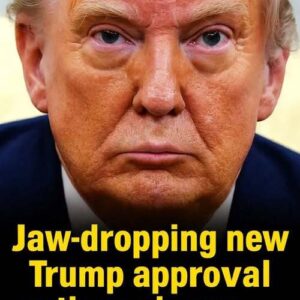An Indiana woman has been arrested and is now facing serious federal charges after allegedly making violent threats against former President Donald Trump. The incident is being described by federal authorities as part of a broader pattern of increasing security threats against high-profile political figures. In a public statement shared via social media, U.S. Attorney Jeanine Pirro emphasized that any threats made against the President of the United States—regardless of one’s political views—will be met with “swift and unwavering prosecution.” Pirro’s message served as a warning that the line between free speech and criminal conduct is crossed the moment someone expresses an intent to commit violence.
The suspect, identified as 50-year-old Nathalie Rose Jones, is reported to have escalated from posting politically charged and hostile messages on social media to making direct and graphic threats targeting President Trump. Her online activity on platforms such as Facebook and Instagram included language that explicitly called for violence and suggested the use of force to remove the president.
What raised further concern among federal investigators was Jones’s decision to travel from her home state of Indiana to Washington, D.C., seemingly in connection with her threats. According to official reports, Jones was interviewed by agents from the U.S. Secret Service on August 15, 2025, during which she openly expressed her hatred for Donald Trump. She reportedly described him as a “terrorist” and a “Nazi,” and claimed she was armed with a weapon. The interview, which was likely intended to assess the level of risk she posed, ended with growing concerns about her intentions.
Shockingly, the very next day—August 16—Jones appeared at a protest near the White House, an act that alarmed federal authorities even more. Given her prior statements and alleged threats, her physical presence near the President’s residence was viewed as a credible and active security threat.
As a result of the investigation, Nathalie Rose Jones has been formally charged with transmitting threats across state lines and threatening the President of the United States, both of which are federal offenses. These charges carry the possibility of severe legal consequences, including significant prison time if she is convicted.
Federal authorities have stressed that while the First Amendment protects freedom of speech and the right to protest, it does not protect speech that incites violence or threatens the safety of others—especially high-ranking government officials. The case is being cited as an example of the government’s ongoing commitment to protecting national leaders and maintaining law and order in the face of political extremism.
Officials say the prosecution is intended to send a clear and firm message: Dissent and criticism are allowed in a democratic society, but violent threats—especially against a sitting or former President—will be taken seriously and dealt with decisively.




